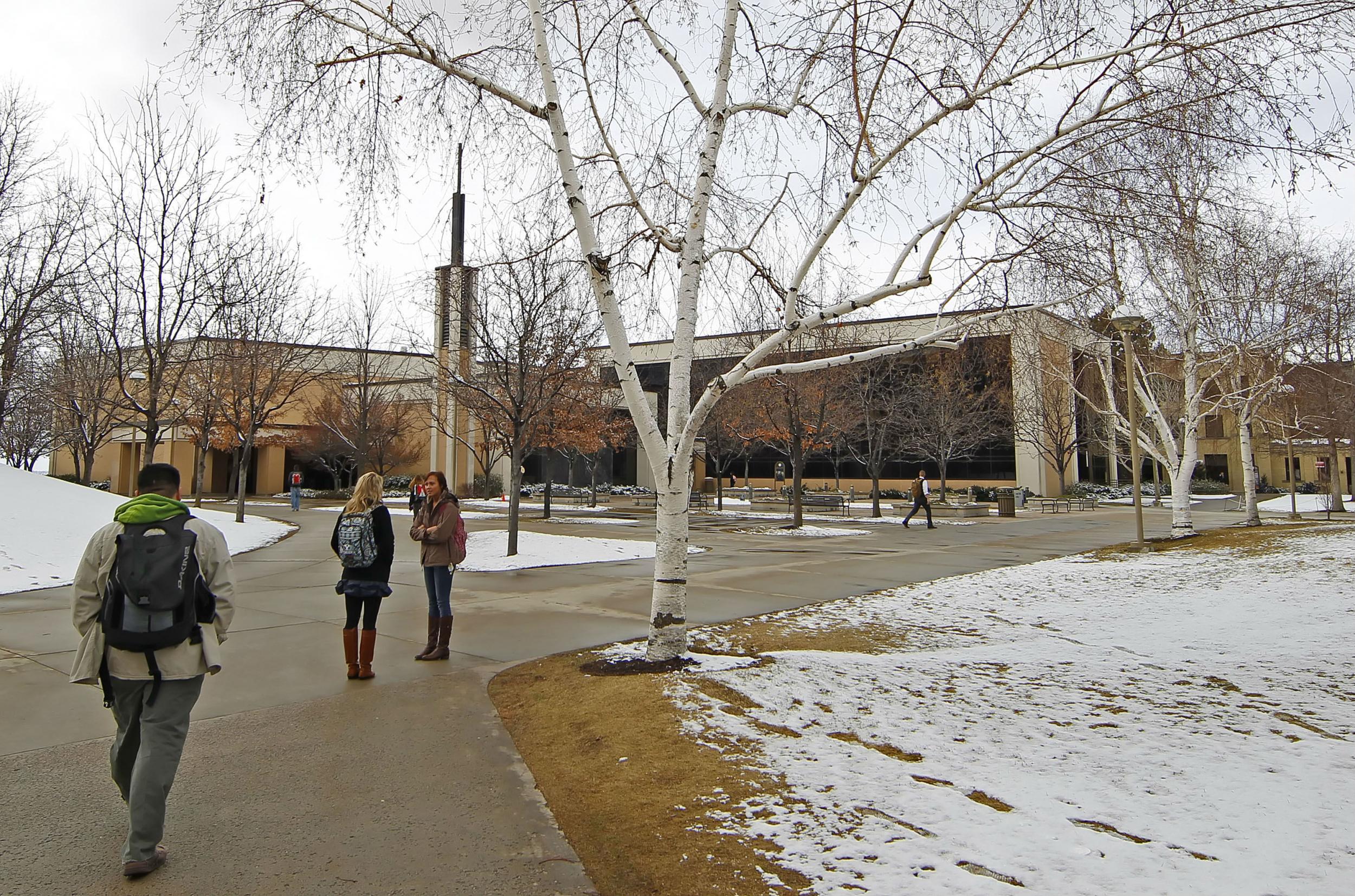Student told she ‘violated’ university’s 'honor code' after she reported her own rape
The school’s honor code prohibits students from taking drugs, alcohol, using bad language and having sex

Your support helps us to tell the story
From reproductive rights to climate change to Big Tech, The Independent is on the ground when the story is developing. Whether it's investigating the financials of Elon Musk's pro-Trump PAC or producing our latest documentary, 'The A Word', which shines a light on the American women fighting for reproductive rights, we know how important it is to parse out the facts from the messaging.
At such a critical moment in US history, we need reporters on the ground. Your donation allows us to keep sending journalists to speak to both sides of the story.
The Independent is trusted by Americans across the entire political spectrum. And unlike many other quality news outlets, we choose not to lock Americans out of our reporting and analysis with paywalls. We believe quality journalism should be available to everyone, paid for by those who can afford it.
Your support makes all the difference.A student who was raped and reported the crime to her university was told that she had “violated” the university’s “honor code”.
The student, Madi Barney, who chose to identify herself to the press, was allegedly raped at her off-campus apartment at Brigham Young University last year.
A month after reporting the crime, she got an email back from a university staff investigator who said she had “violated” the Christian university's honor code.
“I felt re-victimized,” Ms Barney told Utah news channel KUTV.
The school said they could either do a Title IX investigation - a law which prevents discrimination in education based on gender - or an honor code investigation, which says students should avoid drugs, alcohol, bad language and sex.
“When something like the honor code comes into play, and when you are aware that, like, the smallest details of your rape can be blamed on you, it makes it really hard to find the courage to come forward,” said Ms Barney.
Ms Barney was raped by a man who she invited back to her apartment - but not into her bedroom - in September 2015.
Police documents say the alleged rapist later admitted to Ms Barney over the phone that he had forced her into sex. Meanwhile, a friend of the suspect took the police report to the BYU honor code office.
The student has met with the investigator at the honor code office but will not answer any questions from them until the trial of the alleged rapist is over.
Ms Barney plans to transfer to another school after the end of this term.
Several other BYU students and survivors of sexual assault have also come forward to speak against the Honor Code at an event organised to discuss the issue last week.
Briana Garrido, a student at BYU and sexual assault survivor, said that the honor code “creates fear”.
“They are afraid of coming forward about their assaults because they don't know how it will affect their standing academically,” she said.
A BYU university statement read: “In order to protect their own and others’ safety, individuals who believe they have been subjected to Sexual Misconduct should make a report even if they have simultaneously been involved in other violations of university policy, such as use of alcohol or drugs.
“Violations of university policy or the Church Educational System Honor Code do not make a victim at fault for sexual violence or other forms of Sexual Misconduct and will be addressed separately from the Sexual Misconduct allegation.”
Universities and schools across the US have been strongly criticized for failing to deal with survivors of sexual assault who report their crimes, and have even protected perpetrators or have blamed victims, a phenomenon which was widely reported by a documentary called “The Hunting Ground”, which started streaming on Netflix in March.
Vice President Joe Biden, who is involved in the national “It’s On Us” campaign, which educates men and women on the need to take responsibility and not blame the victim, said that one in five women will experience sexual assault whilst they are a student.
Students at Louisiana State University were angered this week after their university's police spokesman Lieutenant Kevin Scott questioned those statistics.
“If you surveyed 100 girls, or 1,000 female students on LSU’s campus, will you really see one in five that say they’ve been sexually assaulted, if they’re really being honest? Is that accurate? I mean, look at the numbers,” he said in student newspaper The Daily Reveille.
After a “response rally” was organized on Facebook by a university alumni, Mr Scott responded: ”The way I was quoted in The Reveille is not at all what I was trying to say, and while I certainly didn’t mean to create a misunderstanding, I am glad that so many are speaking out about this issue and taking a stand.”
Join our commenting forum
Join thought-provoking conversations, follow other Independent readers and see their replies
Comments